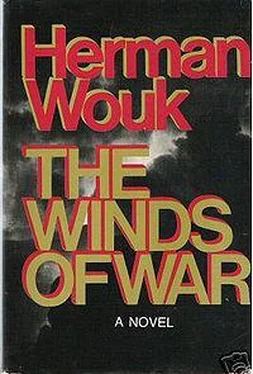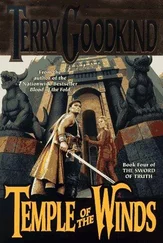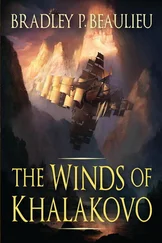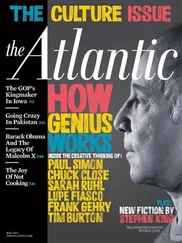Herman Wouk - The Winds of War
Здесь есть возможность читать онлайн «Herman Wouk - The Winds of War» весь текст электронной книги совершенно бесплатно (целиком полную версию без сокращений). В некоторых случаях можно слушать аудио, скачать через торрент в формате fb2 и присутствует краткое содержание. Год выпуска: 1971, Издательство: Collins, Жанр: Историческая проза, на английском языке. Описание произведения, (предисловие) а так же отзывы посетителей доступны на портале библиотеки ЛибКат.
- Название:The Winds of War
- Автор:
- Издательство:Collins
- Жанр:
- Год:1971
- ISBN:нет данных
- Рейтинг книги:4 / 5. Голосов: 1
-
Избранное:Добавить в избранное
- Отзывы:
-
Ваша оценка:
- 80
- 1
- 2
- 3
- 4
- 5
The Winds of War: краткое содержание, описание и аннотация
Предлагаем к чтению аннотацию, описание, краткое содержание или предисловие (зависит от того, что написал сам автор книги «The Winds of War»). Если вы не нашли необходимую информацию о книге — напишите в комментариях, мы постараемся отыскать её.
About the Author
Herman Wouk's acclaimed novels include the Pulitzer-Prize winning
;
;
;
;
;
; and
.
The Winds of War — читать онлайн бесплатно полную книгу (весь текст) целиком
Ниже представлен текст книги, разбитый по страницам. Система сохранения места последней прочитанной страницы, позволяет с удобством читать онлайн бесплатно книгу «The Winds of War», без необходимости каждый раз заново искать на чём Вы остановились. Поставьте закладку, и сможете в любой момент перейти на страницу, на которой закончили чтение.
Интервал:
Закладка:
“I don’t know. I couldn’t be more up in the air.”
“Do you want a job?”
Byron was taken aback. “Well, I guess maybe I do, sir.”
Jastrow ambled to his desk and searched through a pile of books, taking off his glasses and holding the titles very close to his face. “I had a fine researcher, a boy from Yale, but his parents called him home, afraid of a war — ah, here we are. Can I interest you, for twenty dollars a week, in the Emperor Constantine? This is a good general biography to start with.”
“Sir, I’ve flunked more history courses—”
“I see. You don’t want the job.”
The young man took the thick book and turned it dubiously in his hands. “No. I’ll try it. Thank you.”
“Oh, you will, will you? When you say you have no aptitude? Why?”
“Well, for the money, and to be around you.” This was true enough, though it omitted a third good reason: Natalie Jastrow.
Jastrow looked stern, and then burst out laughing. “We’ll give it a try.”
The letter his parents received from him some time later about the girl — which elicited Victor Henry’s strong answer — was unintentionally misleading. There was a love affair going on, but Natalie’s lover was Leslie Slote. His letters came two or three times a week: long fat white Foreign Service envelopes, addressed in an elongated stiff hand, in brown ink, with stamps stuck over the government frank. Byron hated the sight of them.
He was spending hours every day with her in the huge second-floor room that was Jastrow’s main library. Her desk was there. She answered letters, typed manuscripts, and with the Italian woman managed the household. Byron worked at the long library table, reading up on Constantine, checking facts, and drawing maps of the emperor’s military campaigns. Whenever he raised his eyes he saw the smooth face bent over the desk, the shapely bones highlighted by sunshine, or on dark days by a lamp. There was also the ever-present view of her long pretty legs in a sheen of silk. Natalie dressed in dun wool, and was all business with him; she used almost no paint once Slote left, combed her hair back in a heavy bun, and talked to Byron with offhand dryness. Still, his infatuation took quick root and grew rankly.
She was the first American girl he had spoken to in months; and they were thrown together for many hours a day, just the two of them in the book-lined room. This was reason enough for him to feel attracted to her. But she impressed him, too. Natalie Jastrow talked to her famous uncle as to a mental equal. Her range of knowledge and ideas humiliated Byron, and yet there was nothing bookish about her. Girls in his experience were lightweights, fools for a smile and a bit of flattery. They had doted on him at college, and in Florence too. Byron was something of an Adonis, indolent and not hotly interested; and unlike Warren, he had absorbed some of his father’s straitlaced ideas. He thought Natalie was a dark jewel of intellect and loveliness, blazing away all unnoticed here in the Italian back hills. As for her indifference to him, it seemed in order. He had no thought of trying to break it down.
He did things he had never done before. He stole a little pale blue handkerchief of hers and sat at night in his hotel room in town, sniffing it. Once he ate half a cake she had left on her desk, because it bore the mark of her teeth. When she missed the cake, he calmly lied about it. Altogether he was in a bad way. Natalie Jastrow seemed to sense nothing of this. Byron had a hard shell of inscrutability, grown in boyhood to protect his laziness and school failures from his exacting father.
They chatted a lot, of course, and sometimes drove out in the hills for a picnic lunch, when she would slightly warm to him over a bottle of wine, treating him more like a younger brother. He soon got at the main facts of her romance. She had gone to the Sorbonne for graduate work in sociology. Jastrow had written about her to Slote, a former pupil. A fulminating love affair had ensued, and Natalie had stormily quit Paris, and lived for a while with her parents in Florida. Then she had come back to Europe to work for her uncle; also, Byron surmised, to be near Slote for another try. The Rhodes Scholar had now received orders to Warsaw, and Natalie was planning to visit him there in July while Jastrow took his summer holiday in the Greek islands.
On one of their picnics, as he poured the last of the wine into her glass, Byron ventured a direct probe. “Natalie, do you like your job?”
She sat on a blanket, hugging her legs in a heavy checked skirt, looking out over a valley of brown wintry vineyards. With an arch questioning look, cocking her head, she said, “Oh, it’s a job. Why?”
“It seems to me you’re wasting away here.”
“Well, I’ll tell you, Byron. You do peculiar things when you’re in love.” His response to this was a dull unfocussed expression. She went on: “That’s one thing. Besides, frankly, I think Aaron’s rather wonderful. Don’t you? Horribly crotchety and self-preoccupied and all that, but this Constantine book is good. My father is a warm, clever, goodhearted man, but he’s the president of his temple and he manufactures sweaters. Aaron’s a famous author, and he’s my uncle. I suppose I bask in his glory. What’s wrong with that? And I certainly enjoy typing the new pages, just watching the way his mind works. It’s an excellent mind and his style is admirable.” She gave him another quizzical look. “Now why you’re doing this, I’m far less sure.”
“Me?” Byron said. “I’m broke.”
Early in March Jastrow accepted an offer from an American magazine for an article about the upcoming Palio races. It meant he would have to put off his trip to Greece, for the race was run in July and again in August; but the fee was too absurdly fat, he said, to decline. If Natalie would watch the races and do the research, he told her, he would give her half the money. Natalie jumped at this, not perceiving — so Byron thought — that her uncle was trying to stop, or at least delay, her trip to Warsaw. Jastrow had once flatly said that Natalie’s pursuit of Slote was unladylike conduct and bad tactics. Byron had gathered that Slote did not want to marry Natalie, and he could see why. For a Foreign Service man, a Jewish wife at this time would be disastrous; though Byron thought that in Slote’s place he would cheerfully give up the Foreign Service for her.
Natalie wrote to Slote that same day, postponing her trip until after the August Palio. Watching her bang out the letter, Byron tried to keep joy off his face. She might go, he was thinking, and then again she might not! Maybe a war would come along meantime and stop her. Byron hoped that Hitler, if he was going to invade Poland, would do it soon.
When she finished, he went to the same typewriter and rattled off the famous letter to his parents. He intended to write one sheet, and wrote seven. It was his first letter to them in months. He had no idea that he was picturing himself as an infatuated young man. He was, he thought, just describing his job, his employer, and the charming girl he worked with. And so Pug Henry got needlessly worked up, and wrote the solemn reply, which startled and amused Byron when it came; for he was no more thinking of marrying Natalie Jastrow than of turning Mohammedan. He was just head over ears in love, with a young woman as near as his hand and as remote as a star; and for the moment it was enough to be where she was. He wrote again to set his father straight, but this letter arrived in Washington after the Henrys had left for Germany.
Chapter 3
In all her years as a Navy wife, Rhoda had never become reconciled to packing and moving. She could do it well enough, compiling long lists, remembering tiny details, waking in the middle of the night to scrawl notes, but she became a termagant. The angry voice rang in the house from dawn to midnight. Pug spent the days in the Office of Naval Intelligence, boning up on Germany, and ate most of his meals at the Army and Navy Club. Still, on the short notice given her, Rhoda accomplished everything: stored the furniture, closed the house and put it up for rent, paid the bills, packed her clothes and Pug’s heavy double wardrobe of civilian dress and uniforms, and moved Madeline to the home of her sister.
Читать дальшеИнтервал:
Закладка:
Похожие книги на «The Winds of War»
Представляем Вашему вниманию похожие книги на «The Winds of War» списком для выбора. Мы отобрали схожую по названию и смыслу литературу в надежде предоставить читателям больше вариантов отыскать новые, интересные, ещё непрочитанные произведения.
Обсуждение, отзывы о книге «The Winds of War» и просто собственные мнения читателей. Оставьте ваши комментарии, напишите, что Вы думаете о произведении, его смысле или главных героях. Укажите что конкретно понравилось, а что нет, и почему Вы так считаете.












